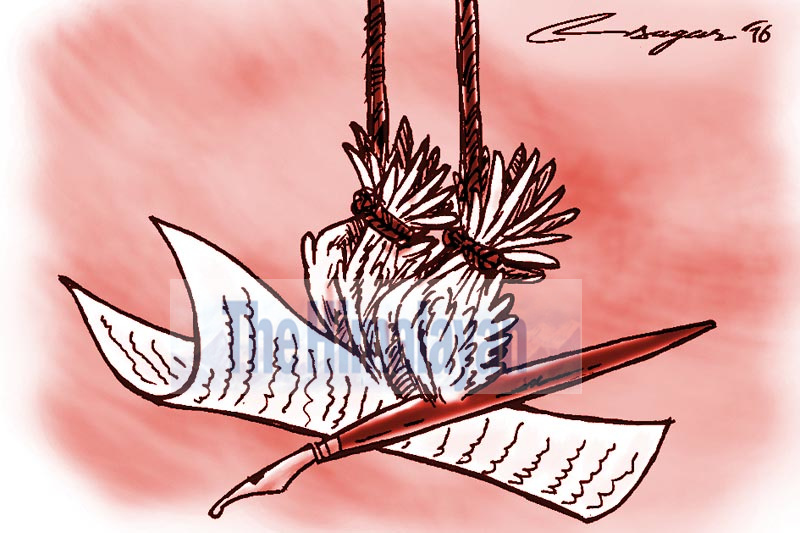Nepal slips 6 ranks on RSF index
Kathmandu, April 21
Nepal has dropped six places on the global Press Freedom Index to rank 112th out of 180 countries for 2020.
The country had ranked 106th on the index released by Paris-based Reporters Sans Frontieres in 2019.
According to the report published today, Prime Minister KP Sharma Oli sang praises of press freedom and pluralism when he was in opposition, but after becoming prime minister in February 2018, he tried to gag journalists by getting the Parliament to pass extremely draconian legislation. The new criminal code adopted in August 2018 contains several provisions that hamper investigative reporting and restrict criticism of public figures.
“The government has also tried to get the Parliament to pass a law provisioning a journalistic content regulator whose members would be named directly by the executive. Another disturbing development is the ‘anti-media rhetoric’, which government representatives have started using and which has been widely reproduced in government newspapers, radio stations and TV channels. With the threat of prosecution and continuing violence in the field, the environment for journalists working for independent media outlets has been extremely difficult,” it warned.
Similarly, Bhutan ranked 67th, Maldives 79th, Afghanistan 122nd, Sri Lanka 127th, India 142nd, Pakistan 145th and Bangladesh 151st in South Asia.
The 2020 edition of the index, which evaluates the situation for journalists each year in 180 countries and territories, suggests that the next ten years will be pivotal for press freedom because of converging crises affecting the future of journalism – geopolitical crisis, technological crisis, democratic crisis, crisis of trust and economic crisis.
These five areas of crisis — the effects of which the Index’s methodology allows us to evaluate — are now compounded by a global public health crisis. “We are entering a decisive decade for journalism linked to crises that affect its future,” RSF Secretary-general Christophe Deloire said. “The coronavirus pandemic illustrates the negative factors threatening the right to reliable information, with the pandemic itself an exacerbating factor. What will freedom of information, pluralism and reliability look like in 2030? The answer to that question is being determined today.”
According to the report, there is a clear correlation between suppression of media freedom in response to the coronavirus pandemic and a country’s ranking in the Index. “The public health crisis provides authoritarian governments with an opportunity to implement the notorious ‘shock doctrine’ – to take advantage of the fact that politics are on hold, the public is stunned and protests are out of the question, in order to impose measures that would be impossible in normal times,” Deloire added.
Norway tops the Index for the fourth year in a row in 2020, while Finland is again the runner-up. North Korea has taken the last position from Turkmenistan, while Eritrea continues to be Africa’s worst-ranked country.
A version of this article appears in print on April 22, 2020 of The Himalayan Times.






